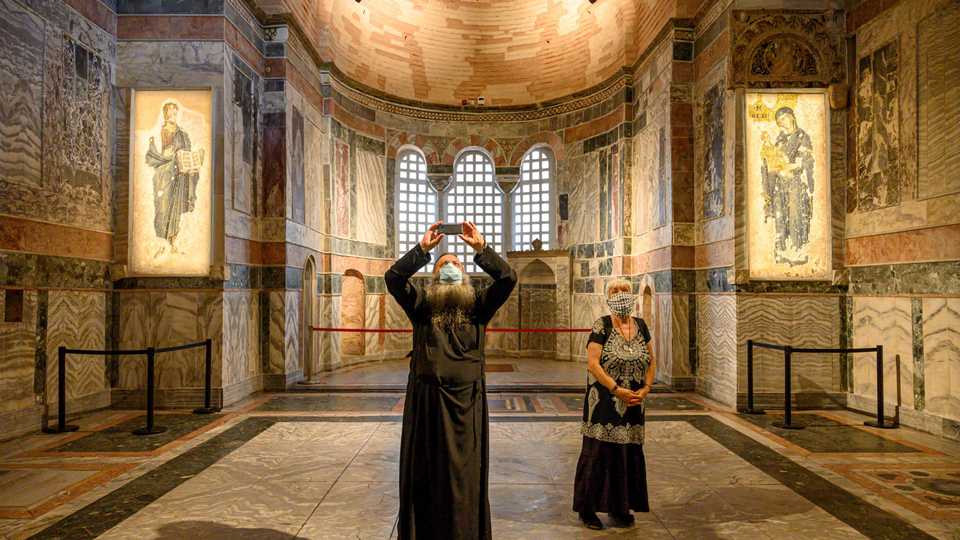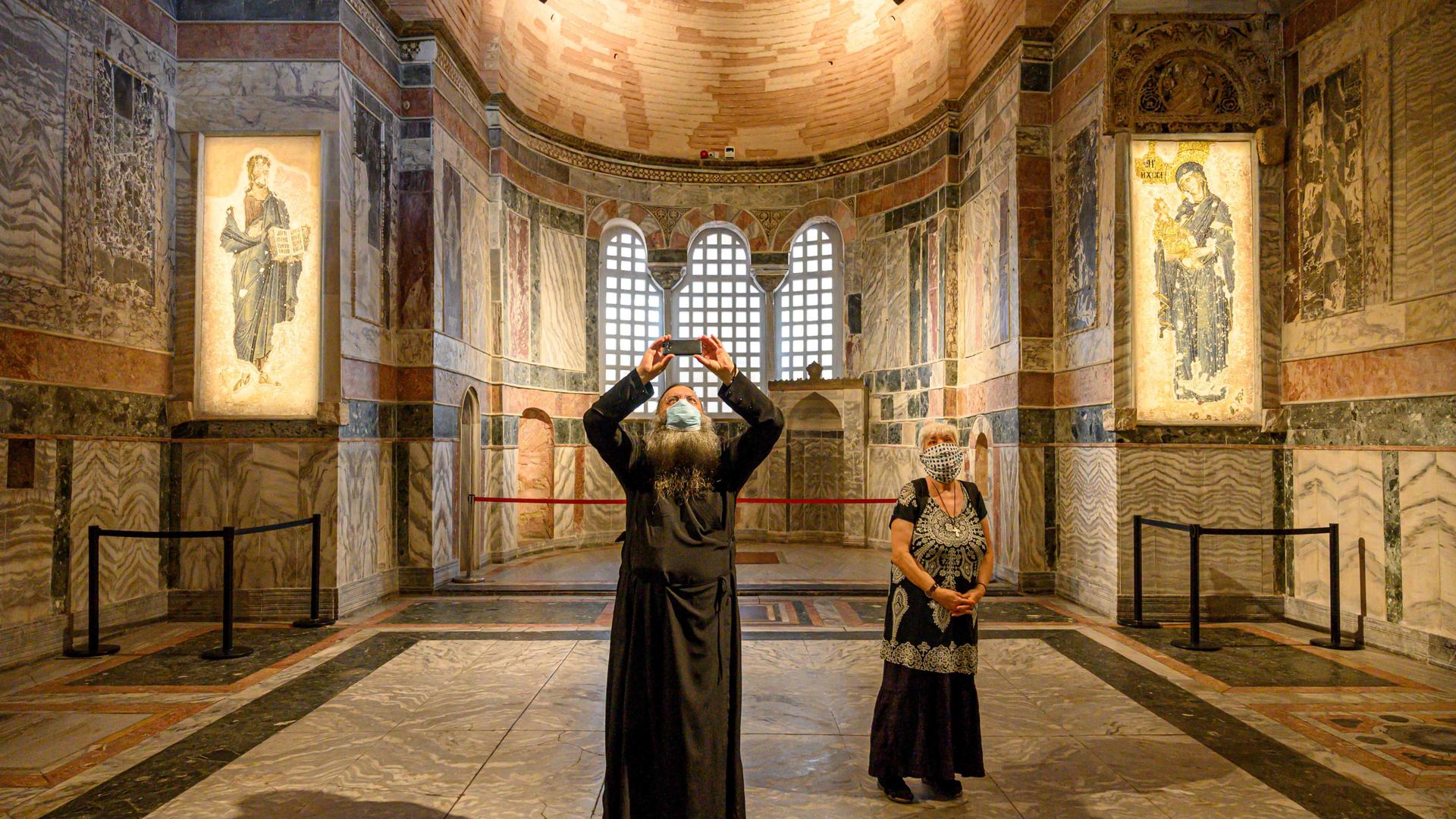
Weeks after the historic return of Hagia Sophia to a mosque, Chora Museum, one of Istanbul’s most celebrated Byzantine buildings, is set to reopen for Muslim worship.
Dating back to the sixth-century Byzantine Empire, the beautiful structure of the building remains intact. In the 16th century, after the conquest of Istanbul by Mehmet II, the church was converted into a mosque.
The interior of the building is covered with some of the oldest and finest surviving Byzantine mosaics and frescoes. They were uncovered and restored after the building was turned into a museum.
Due to the prohibition of iconic images in Muslim prayer venues, the church’s frescoes were covered under a layer of plaster, which took their toll on them, along with major earthquakes (specifically in the 12th century).
READ MORE: The law, and origin story of Istanbul’s iconic Hagia Sophia
Court annuls 1945 decision
Last year a Turkish court annulled a 1945 decision converting Chora, known as Kariye in Turkish, into a museum run by the Education Ministry.
On Friday, a decree signed by President Recep Tayyip Erdogan and published in Turkey’s official gazette declared “the management of the Kariye Mosque be transferred to the Religious Affairs Directorate, and (the mosque) opened to worship.”
The museum, situated near the ancient city walls, is famed for its elaborate mosaics and frescoes. It dates to the 4th century, although the edifice took on its current form in the 11th-12th centuries.
READ MORE: Turkey slams burning of its flag in Greece over Hagia Sophia
Turkey slams Greece’s ‘false agendas’
Meanwhile, Turkey’s Foreign Ministry responding to Greece’s statement that the decision to reconvert museum into a mosque was a “provocation,” said that Turkey protects all its cultural assets “meticulously.”
The ministry called on Athens to provide necessary facilities for Muslims in the country to be able to practice their faith.
“Greek attempts to create false agendas are doomed to fail,” Turkey said.
Residents rush to pray
Also on Friday, several Istanbul residents rushed to the building, some hoping to hold prayers there, Turkey’s state-run Anadolu Agency reported.
“Like the Hagia Sophia, this is an important mosque for Muslims,” the agency quoted Istanbul resident Cuma Er as saying.
“We came here to pray after we learned about the decision. But we have been told that it has not yet been opened for prayers. We are waiting for the opening.”
Last month, President Erdogan joined hundreds of worshipers for the first Muslim prayers in Hagia Sophia in 86 years. As many as 350,000 took part in those prayers outside the structure.
READ MORE: How the Ottoman architect Sinan helped Hagia Sophia survive for centuries










Discussion about this post